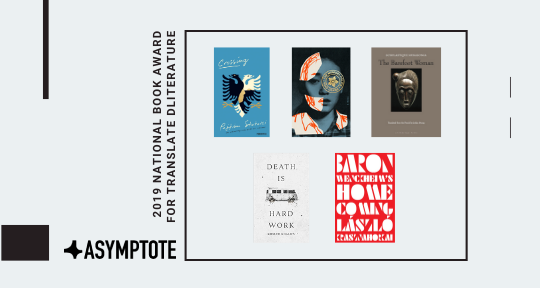This week, our writers bring you news from Lebanon, Taiwan, and Sweden. In Lebanon, the three-day festival Electronic Literature Day will feature writers including Rabih Alameddine and Raafat Majzoub; in Taiwan, the writer Liu Wu-hsiung, known by his pen name, Qi Deng-sheng, is being mourned after passing away and a recent exhibition has featured the works of the late Taiwanese poets Yang Mu and Lo Fu; and in Sweden, writer Jonas Hassen Khemiri was in line for the National Book Award’s Translated Literature prize. Read on to find out more!
MK Harb, Editor-at-Large, reporting from Lebanon
Fernweh! Or “a longing for far-off places, especially those not yet visited.” I recently learned the meaning of this German word on our newly developed “Untranslatable Words” column on Instagram (yes, that’s right we are on Instagram now!). To remedy this longing, which many of us are grappling with, check out this stellar lineup of writers on Electronic Literature Day, a three-day online literary festival featuring writers, thinkers, and practitioners in dynamic formats (November 24-26). The festival is co-organized by Barakunan, an independent publisher and art collective based in Beirut and Berlin. It will feature some of Lebanon’s finest, from acclaimed author Rabih Alameddine, writer and artist Raafat Majzoub, and cultural and social activist Dayna Ash.
This month, the translation news across the Arab region is abundant! Yasmine Seale won the 2020 Queen Mary Wasafiri New Writing Prize for poetry. We’ve previously highlighted Seale’s poetic and engrossing translation of Aladdin that came out with W. W. Norton in 2018. Sawad Hussain sat down with the Anglo-Omani society to discuss translating Arabic literature and the emotional mechanisms involved in bringing the texts “to life” in English. Hussain is the winner of two English PEN Translates awards and in the podcast, she discusses and contextualizes transgender narratives in Oman through the prism of translating The Shadow of Hermaphroditus by Badriyya al-Badri. Here at Asymptote, we are excited about Arabic children’s literature in translation! The English translation of Sonia Nimr’s Wondrous Journeys in Strange Lands from Interlink Books will debut on November 24! It is a feminist folktale unfolding through the journeys of a young Palestinian woman by the name of Qamar. Marcia Lynx Qualey, founder of Arablit Quarterly, worked on the translation. She previously gave an interview to Asymptote in 2017. Finally, on November 24 the shortlist for the 2020 Saif Ghobash Banipal Prize for Arabic Literary Translation will be announced. This year’s prize saw fourteen entries in fiction and poetry, with excellent nominees such as Ibtisam Azem’s The Book of Disappearance translated by Iraqi novelist and scholar, Sinan Antoon. READ MORE…


